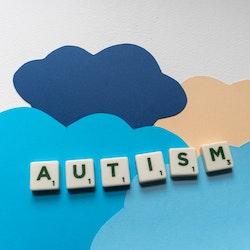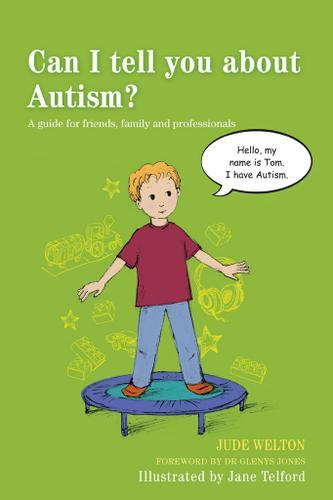‘Autism Awareness Day’ is observed on 2nd April and every year, this day is ‘celebrated’ all over the world to create awareness about Autism. This is important to make parents aware of signs of autism in children at an early age and also provide people with relevant information needed to deal with the issue confidently.

Autism is not a disease!
Important Statistics on Autism Spectrum Disorder
As per the statistics, autism spectrum disorder, or ASD, or autism affects almost 18-20 million people in India with approx. 1 to 1.5% of children between 2 to 9 years. About 10% of schoolchildren are identified to have mild to severe learning disabilities.
Unfortunately, an incorrect diagnosis of Autism as Mental Retardation or Schizophrenia leads to a delay in the diagnosis of ASD which further aggravates the symptoms. Lack of awareness along with poor diagnosis and lack of basic services has led to a surge in ASD cases.
This is an alarming number and it's really sad that despite such high numbers, there is a serious lack of awareness in our society.
What is Autism?
Let us understand what exactly is Autism? Is it a disease? Is there any treatment/medicine to cure Autism?
Firstly, autism is not a disease, rather it is a developmental disorder that impairs the ability to interact & communicate and involve socially. It is a lifelong condition. Since it is not a disease, there is no medicine or treatment as such to ‘cure’ autism. However, this condition can be managed with early intervention and therapies.

Accept the Child with autism wholeheartedly
What causes Autism?
There is no single cause of autism. Rather, it develops from a combination of non-genetic, genetic, and environmental factors. Autism, being a spectrum, has varying degrees of disabilities.
Signs of Autism in Children
Some of the red flags to look out for in autism in children are-
- Delay in milestones eg. child does not start walking or babbling at an appropriate time
- Hyperactivity e.g. child is continuously on move or is constantly running or climbing without any apparent goal except motion. As a result of hyperactivity, autistic children often tend to ignore or underestimate the danger
- No finger pointing – usually finger pointing starts between 10-15 months of age. If a child is not able to point a finger by 18 months, it’s a red flag
- Toe walking – This is a very common sign in autistic children
- Food aversion/eating issues – Autistic children are usually picky eaters and show aversion to certain textures/tastes/smells/temperatures of food
- No response to name viz when someone calls their name, they do not respond
- Lack of communication (verbal/nonverbal)
- Lack of eye contact
- Repetitive play – Autistic children usually have repetitive behavior viz playing with the same toy in the same manner, listening to the same song/rhyme, etc.

AUTISM SPECTRUM DISORDER
How Early Intervention helps children with Autism?
Early intervention plays a very important role in settling the issues faced by children with autism by helping them develop age-appropriate skills with regard to speech, socialization, learning, academics, Activities of Daily Living (ADLs), etc. It includes therapies like –
- Occupational therapy (OT)- this therapy helps in the development of independent functioning with the help of various activities that a person performs in everyday life
- Applied Behaviour Analysis (ABA) is a scientific approach to understanding different behaviors and helps in improving or changing them to become more socially acceptable
- Speech & Language Therapy – The majority of autistic children face speech delays along with a lack of communication making them unable to express their needs. A speech therapist helps in speech & language development, development of communication skills, clarity of speech, and articulation.
- Special Education – Due to the issues associated with ASD, attaining basic education becomes very challenging for autistic children. A Special Educator provides with environment and techniques that help autistic child to attain education by addressing their individual requirements.

Can I tell you about Autism?
Can autistic children lead a normal life when they grow up?
It is a myth that people with autism cannot lead a normal life or become successful. There are ample examples of people with autism who have created world records and created history. Some examples are –
Michael Phelps – world swimming champion with 22 Olympic medals,
Temple Grandin – Animal Scientist,
Emma Watson – Actress & UN Goodwill Ambassador, etc.
Web series like ‘The Good Doctor’, ‘Young Sheldon’, ‘Extraordinary Attorney Woo’, and movies like ‘My name is Khan’ and ‘Taare Zameen Par’ are some examples of modern art that help us in understanding autism.
Also read- Parental Burnout- Causes, Effects and Effective Solutions
Tips for parents with children on the autism spectrum
When a child gets diagnosed, it is usual for parents to feel depressed & stressed. Thoughts like “why me?”, “what will happen to my child now?” keep haunting them day and night. Follow these essential tips to live a happy and healthy life with your child-
1. The most important thing to feel better is “ACCEPTANCE”. Accept your child’s diagnosis as quickly as possible. Though it is easier to say, once you accept autism as a part of your child, you will start finding strength within yourself to deal with it.
2. Also, parents must join some parent support groups where they can interact with senior parents and learn from their experiences.
3. It is very important to keep constantly in touch with your therapist, take weekly reports and feedback, ask your questions, and discuss your concerns.
4. Other than this, regarding education, it is important to engage a special educator but always ensure that you and the teacher work as a team and are always on the same page.
5. Regular discussions and goal-fixing with therapists and special educators help in achieving the goals faster.
6. Most importantly, never compare your child with anyone, and celebrate every little achievement.
A piece of advice for parents of kids with autism
Other than taking care of the child and his therapies, it is equally important to focus on your own physical fitness also. Regular meditation along with exercising, taking breaks in between, taking out some time for a hobby and most importantly talking about your problems are some ways to curb anxiety.
Author - CA Shivani Lohia
Shivani is a Chartered Accountant by profession and mother to 8 years old child on the autism spectrum. The cause of autism awareness is very close to her heart. She believes in equal education for all & strongly advocates inclusion at all levels. By virtue of her profession, she has started a campaign for financial awareness for parents with children on the autism spectrum. You can read about various aspects related to ‘Financial Planning for Special Needs Families’ on her website www.autismfinancialplanning.com which is a financial information platform for special needs families.
Must read-
